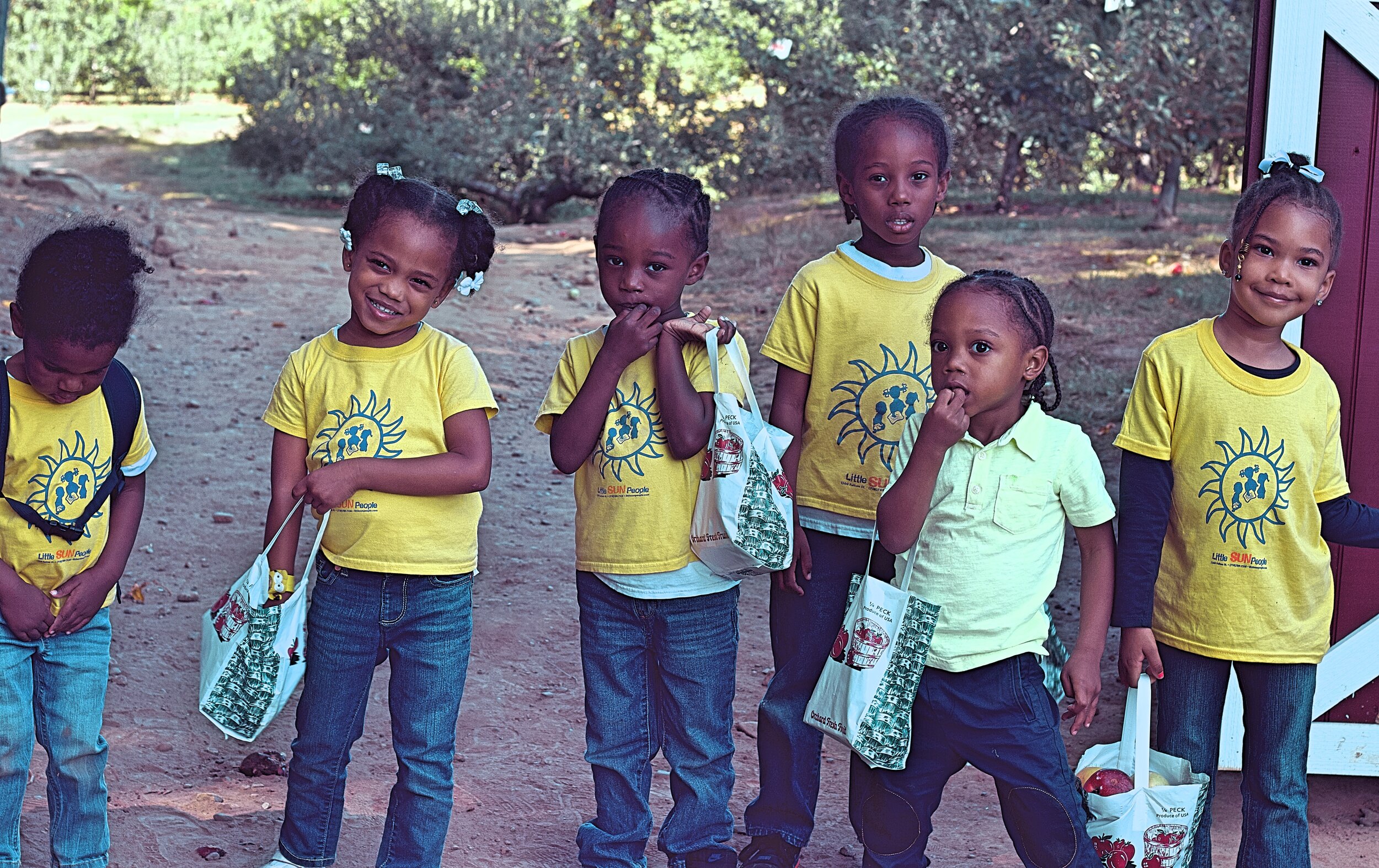Little Sun People Welcomes You To The Opening Of Our First Kindergarten Classroom
It has been a long time coming, 44 years in fact, since Little Sun People first opened its doors, but it's finally here! For many years the community of Black African heritage parents have asked:
“When will Little Sun People offer an elementary school program for our children?”
Little Sun People has listened. We are happy to welcome you to the grand opening of our first kindergarten classroom opening on Monday, September 9, 2024!
Little Sun People with its long history of offering a thoughtful, practical and well designed African centered curriculum that helps our children to know and understand the importance of their great history and out of that knowledge helping them to develop a strong, grounded, positive self-identity where they learn to believe in themselves and their people along with methods for navigating a system that has historically been unjust to them. At the same time, Little Sun People has carefully followed the guidelines of the New York State Education Department in regard to the important cognitive domains that support children's foundational skill ls for academic success in the system in which they must function.
In addition to our comprehensive curriculum, we also offer the warmth, the love, the care, and understanding that only we know how to give each other. Offered in a clean, newly renovated, safe environment on the fourth (4) floor of our elevated building at 352 Classon Avenue, Brooklyn.
We offer a small class size, where each child’s learning plan is individually arrived at through consultations between the parent, child, and teacher. Our credentialed kindergarten teacher Mama Shawna Dunkley, graduate of Brooklyn College teacher training program is here, ready to welcome your wonderful little kindergartener to the best Black child-centered educational environment in Brooklyn. Little Sun People's first kindergarten class which next year will become our first, 1st grade class.
The History Behind Our Names
Timbuktwos (2 year-olds) Timbuktu is a small town in what's now known as Mali, in West Africa. In its Golden Age, the town’s numerous Islamic scholars and extensive trading network fostered an important book trade. Together, with the Islamic University campuses, Timbuktu became Africa’s center for scholarship.
Ashanti Igbo Abuo (2.5-3 year-old) The Ashanti people are an ethnic group in south-central Ghana and adjacent areas of Togo and Côte d’Ivoire. They were the first African group to declare their independence from British colonization in 1957, thanks to Queen Yaa Asantewaa. The Igbo people are an ethnic group in Nigeria, primarily living in Abia, Anambra, Ebonyi, Enugu, and Imo States. Ahou is the second most-used Igbo language.
Yaa Asantewaa (3-3.5 years-old) Yaa Asantewaa was a queen of the Ashanti Empire, located in modern day Ghana. In the 1900s, she led the Ashanti rebellion against British colonialism, known as the War of the Golden Stool. Her dream of a free Asante was realized on March 6, 1957 when the Asante protectorate gained independence as part of Ghana, the first African nation to achieve this banner of freedom.
Ife Three’s (3.5-4 year-olds) Ife was an ancient Yoruba city in south-western Nigeria. It is said to be, not only the oldest organized community on the planet, but the cradle of humanity, especially by followers of the Yoruba faith called Ifa. Its earliest inhabitants date as far back as 600 B.C. and the Yoruba translation of Ife is “expansion.”
Zulu Fouriours (4-5 year-olds) Our Fouriors are named after the Zulu warriors, the military arm of the largest South African ethnic group mainly located in the modern-day province of KwaZulu-Natal. The Zulu Kingdom played a major role during the 19th and 20th centuries because their warriors fought against British opposition. King Shaka, arguably one of the most influential figures in South African history, led the resistance and under his reign, various tribes united, which expanded his troops and empire.
Makondes (K-3rd Grade Cultural Explorers Summer Camp and After School Program) The Makonde are an ethnic group in East Africa that are a matriarchal society where descent and ancestral lineage is traced through the mother. Children and inheritance belong to women and once married husbands move into the village of their wives.




